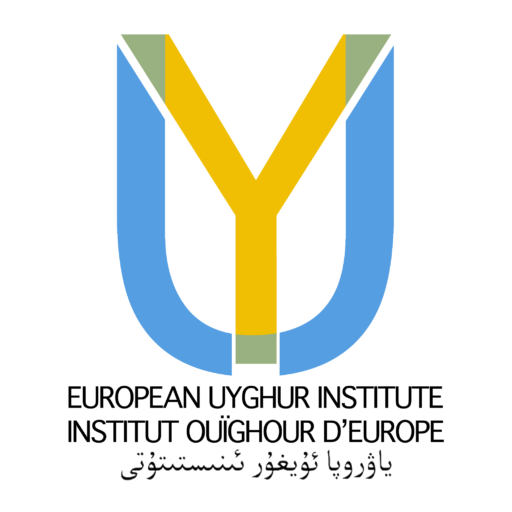On Saturday 3 December, in response to the serious incidents that have taken place in the Uyghur Region in recent months, including the organised famine in Ghulja and the fire in Ürümchi, and the inaction of European governments in the face of the ongoing tragedy, the European Uyghur Institute organised a “March against the ongoing Uyghur genocide”. The name echoes the October 2021 demonstration which was a “March against the Uyghur Genocide”. More than a year after this major gathering, little has been done to confront the crimes committed by the Chinese government against the Uyghur people. Even after recognising the Uyghur genocide on 20 January 2022, the French government has yet to take any concrete action to oppose the People’s Republic of China (PRC) on this issue.
This march was therefore necessary to remind politicians and the general public of the grave situation that the Uyghurs are still living and to demand concrete actions. It was also organised in solidarity with those who dare to protest in the PRC and who are now part of a protest movement called the “white paper revolution”, 白紙革命 baizhi geming. Indeed, since the Ürümchi fire, students and citizens have taken to the streets to protest against the Chinese authorities’ zero covid policy and the abuses suffered by Uyghurs as a result of government measures supposedly put in place to control the pandemic.
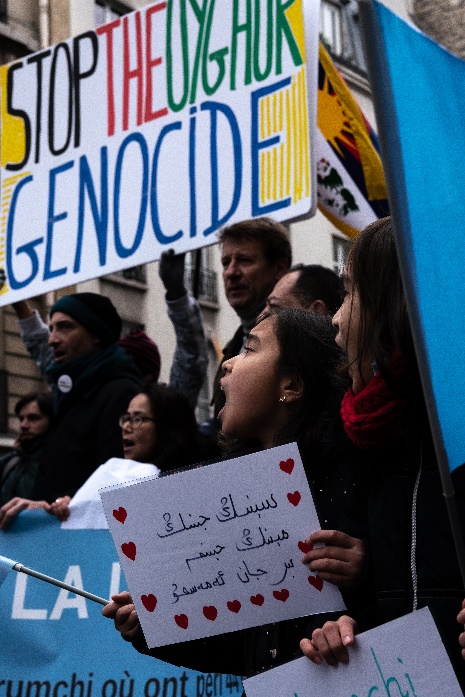
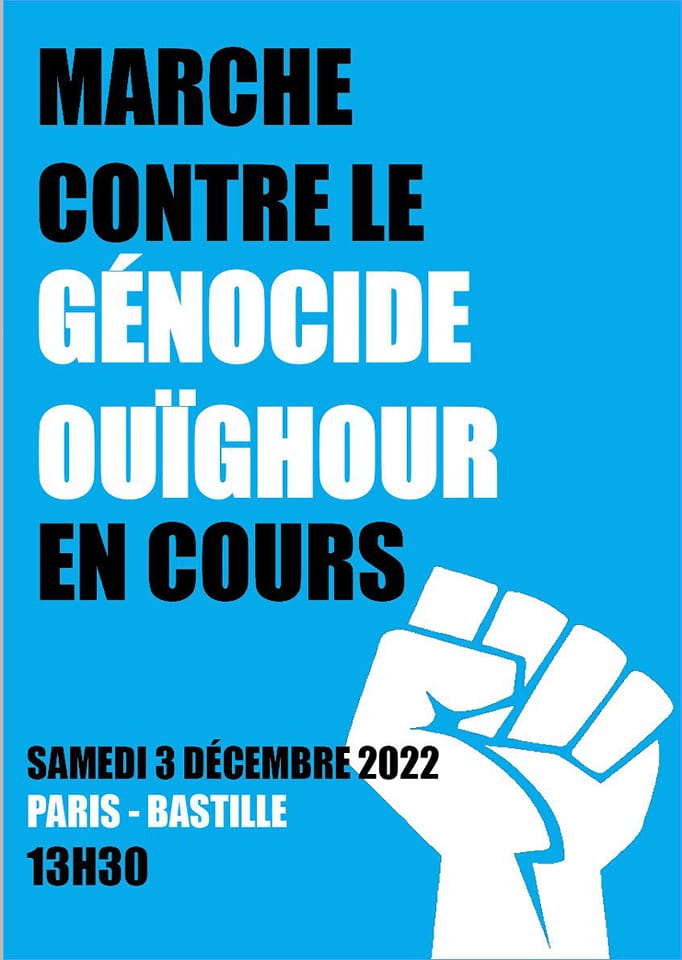
An article published in Le Monde, recalls the reasons that led IODE to organise this march. Written by Dilnur Reyhan, President of IODE, it was signed by : the “Uyghur Studies” group in the French National Assembly; the Socialist and Related Groups in the French National Assembly; the Ecologist Group in the French National Assembly; the Ecologist – Solidarity and Territories Group in the French Senate; the Socialist, Ecologist and Republican Group in the French Senate; the Europe Écologie delegation in the European Parliament; the delegation of the ecological and social left in the European Parliament; as well as the local groups Youth for Uyghurs, Paris for Uyghurs, Grand Lyon for Uyghurs, Strasbourg for Uyghurs, Bordeaux for Uyghurs, Lille for Uyghurs, Metz for Uyghurs, Grenoble for Uyghurs and Melun for Uyghurs.
The march took place in Paris. It started from the Place de la Bastille at 2.30 pm and went to the Place de la Nation. Between 500 and 600 people were present and marched with members of the Uyghur diaspora and the European Uyghur Institute chanting slogans including “Genocide underway, save the Uyghurs”, and “What do we want? Freedom for the Uyghurs”.
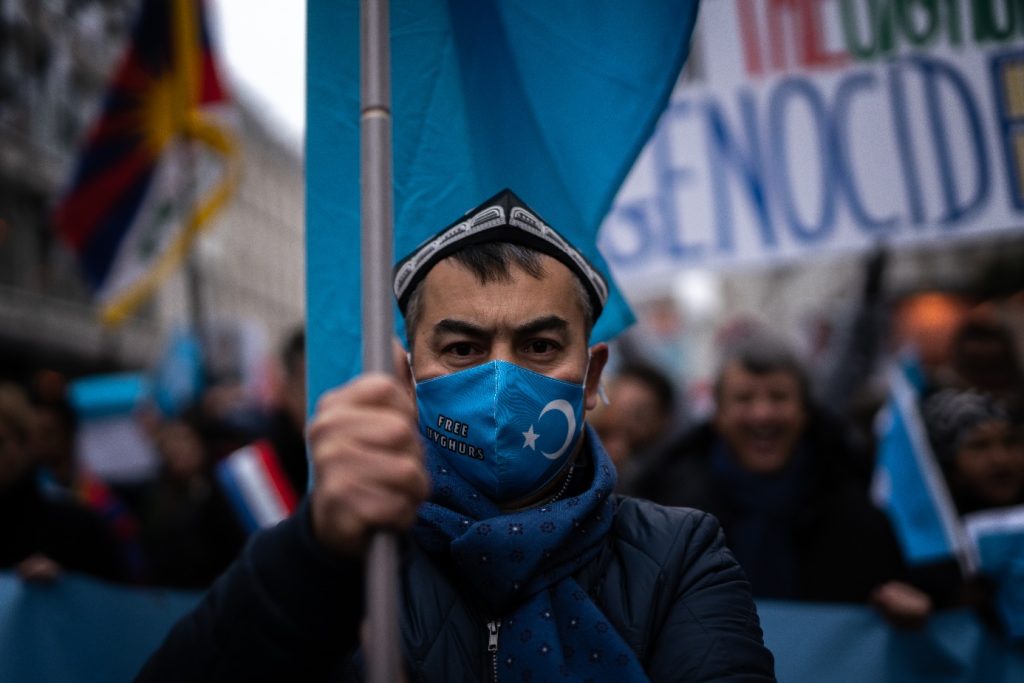
During this very dynamic demonstration, many protesters held placards or simply a white or blue piece of paper. The white sheet was a symbol of solidarity with Chinese protesters in the PRC, and the blue sheet, the colour of the Uyghur people, was a symbol of solidarity with the Uyghurs. It was important for the IODE to show “solidarity with both [the] Chinese and [the] Uyghurs”, as Dilnur Reyhan emphasised at a press conference the day before.

The demonstration was joined by a number of well-known politicians and activists, who came to show their solidarity with the Uyghurs as well as with the protesters in the PRC. Raphaël Glucksmann, Yannick Jadot, David Assouline, Olivier Faure, Eric Pliez, Jean-Luc Romero, Olivier Besancenot, Esther Benbassa, André Gattolin, Camille Etienne, Geneviève Garrigos, Aleksander Glogowski, Voltuan and Thupten Gyatso were present amongst others and gave speeches expressing their commitment to the Uyghur cause. Thupten Gyatso, member of the Tibetan parliament in exile, stressed that neither Uyghurs, Mongolians nor Tibetans are minorities, and reminded us, as did the presence of many Tibetan demonstrators, of the situation of other peoples colonized by the PRC and the possibility of working together in a process of decolonization. The Socialists of Paris were also present to show their support to the Uyghur people and the Uyghur diaspora in France.
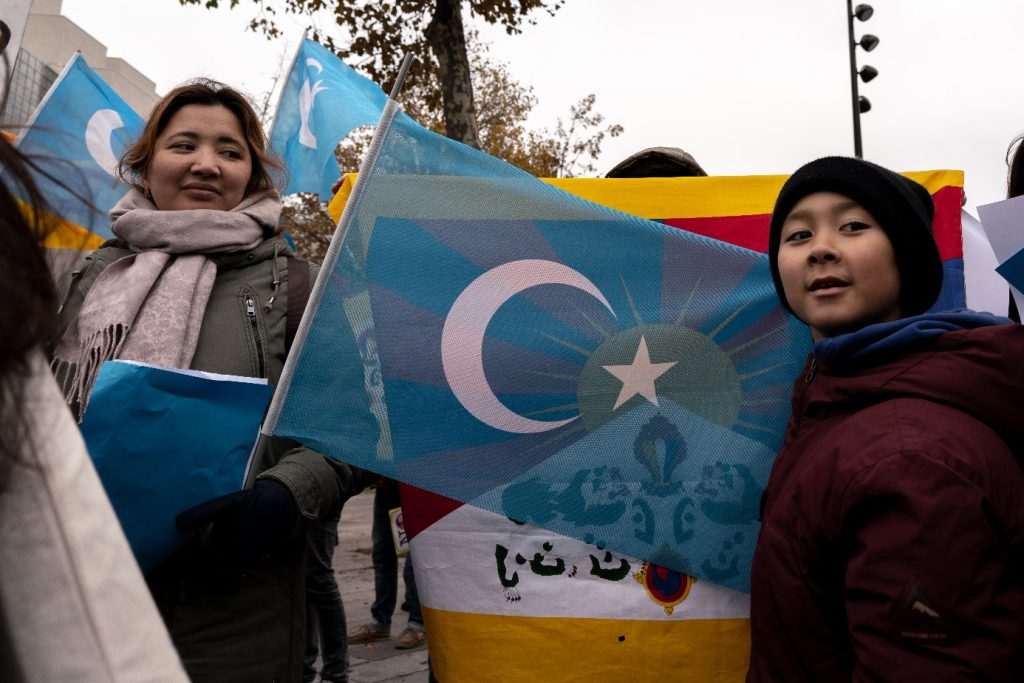
See excerpts from the event, including some of the speeches given, here.
